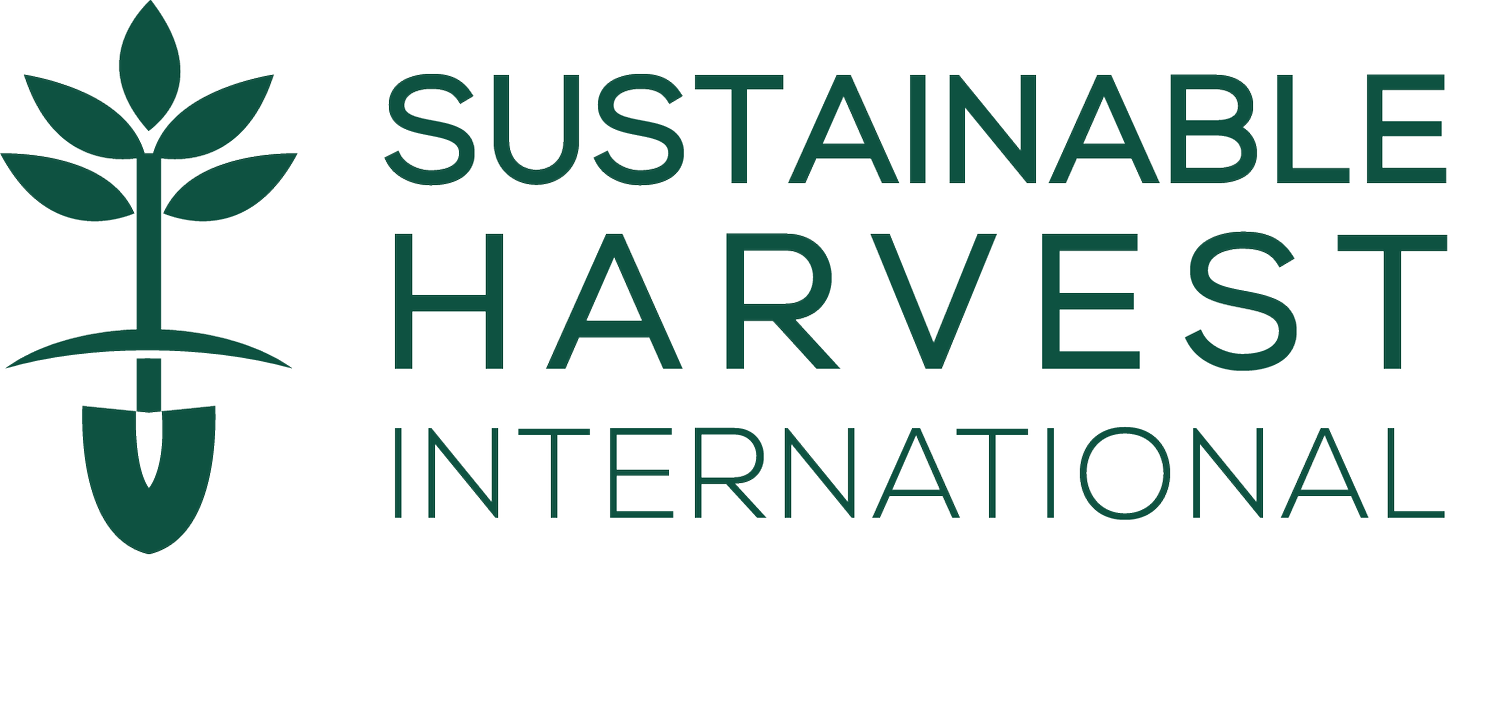by Mariano Nararro, Field Trainer
Mariano Navarro started working as a Field Trainer with Sustainable Harvest International in 2010 - photo by Michele Christle
A PLACE OF LOVE
Piedras Gordas, Panama - Working in Piedras Gordas, and with the Reyes specifically has been a unique experience. Because of the recent drought the families who work with us in Piedras Gordas are even more open to shifting their agricultural practices. They recognize that they have to be in order to keep feeding their families. In addition, Piedras Gordas is located within the buffer zone of a national park. The stark contrast of the lush green park compared to the dry land that has been used for agricultural purposes around it makes it even easier for people to reflect upon the importance of changing their practices—they can literally see the difference.
The hills of Piedras Gordas - photo by Michele Christle
There’s a difference between Joaquín and the other farmers I’ve worked with. Not only is Joaquín already convinced that we have to make changes in how we treat the earth, he’s been trying to make those changes for years. Even before he signed on to work with us, Joaquín had a clear sense of the differences between conventional and organic farming. When it comes to working with individual farmers, there’s no one-size-fits-all solution. We’ve been able to meet Joaquín’s needs, allowing him to progress even further with the techniques he’s learning and implementing.
Joaquín nourishes those around him with both food and with ideas—he’s interested both in theology and politics. We’ve had some lengthy conversations during which he always makes surprising connections between these subjects. He’s always wanted to help others. He’s an advocate for the poor and a good friend to nature. Everything Joaquín does comes from a place of love. He’s found peace in the progress he’s made in conserving his land for the next generation.
Urita, Joaquín’s wife, shares Joaquín’s principles. They’re in this fight together. Urita takes advantage of the opportunities presented to her—everything from working in the field to selling crafts to supplement their income, to enriching her skill set, and so on. Despite their socio-economic challenges, Urita has no reason to resign herself to a life without hope. On the contrary, in partnership with Joaquín, they continue to move the family forward in a positive direction.
A COMMON GOAL
Working with families over the course of five years, I’ve learned that not everyone will change 100%. After graduating, some will end up incorporating all of the techniques and training we teach into their long-term plans and others won’t.
Mariano explains the technology behind composting latrines - photo by Ediberto Trujillo
To me, the partnership between the Reyes family and Sustainable Harvest International is like a couple holding hands and walking together toward a common goal—a mutually enjoyable “empire.” At the same time, entering into unions like this can be challenging. There are always differing philosophies to be integrated and in order for them to work, the philosophies must not be too divergent.
This is a partnership that won’t fail. As Joaquín himself says, our mission embodies the principles he lives by. In order for us to remain on the same channel and continue to benefit, both parties have to be invested.
The goals of Sustainable Harvest International are wide and there are many branches to each of them. If the families I work with integrate the majority of what we teach, helping us to achieve these goals, I feel I’m doing my job well.
Joaquín and Ricardo (Program Impact Officer) - photo by Bailey McWilliams
We couldn’t resist asking Mariano to share a bit about his experience working as a field trainer, which he’s been doing since 2010. Before working with us, Mariano trained in agriculture, electricity, ecology, leadership, small business administration, animal husbandry, and eco-tourism. Mariano is married and has two children. In addition, Mariano has worked as a professional musician and has participated in regional and national competitions for singing and folk dancing.
HUMILITY: THE SECRET INGREDIENT
Allow me to be perfectly sincere: before working with Sustainable Harvest International, the world around me didn’t mean that much to me. Even if I admired scenic beauty—the landscape, crystalline waters, animals howling, birds singing, the cool stillness of the forests where one can breathe clean air, I wasn’t aware of the importance of organic farming. Now I understand the relationship between these things at the very foundation.
I’ve seen the damage we’ve done to nature, in every sense of the word. This changed the way that I think to the point that I now choose to eat organic, healthy foods whenever possible. I appreciate all of the products that nourish us (without the need to bring them from somewhere else).
I see myself as a coach and friend to the families I work with. We talk about environmental problems and damage caused by conventional farming practices. We also talk about the alternatives we have at our disposal. All field trainers do roughly the same work; we all follow the Sustainable Harvest International methodology. Nevertheless, there are always personality and style differences.
As a child, my parents taught me to be humble and to love and appreciate others. Humility is something that helps me to consider other people as family rather than as strangers. This training helps me to win the appreciation and trust of the families I work with.
Thank you, Mariano. Thank you, Reyes family.






